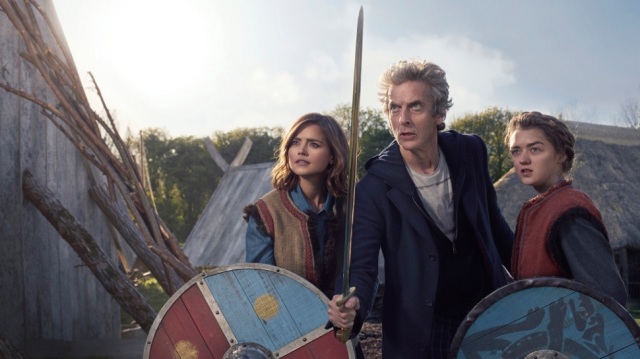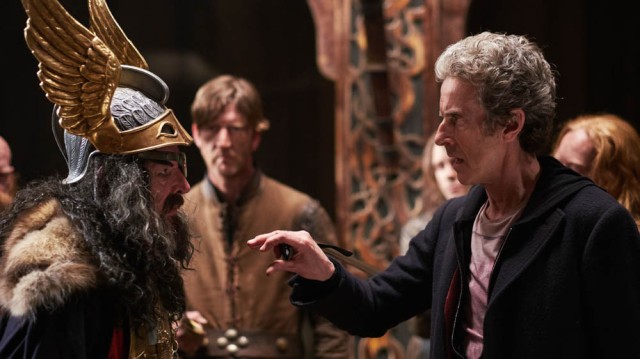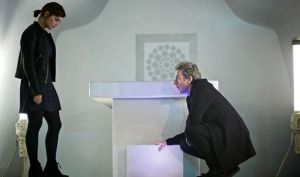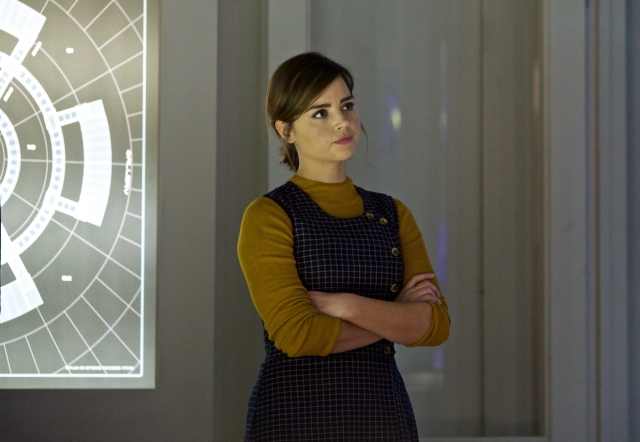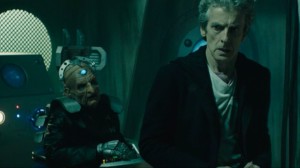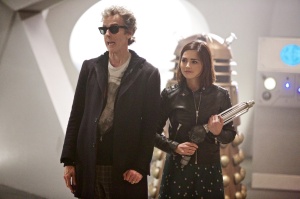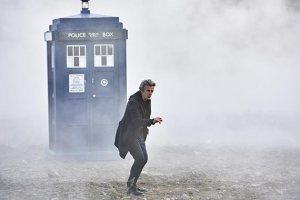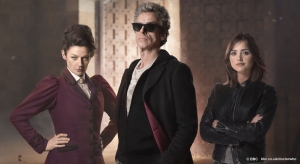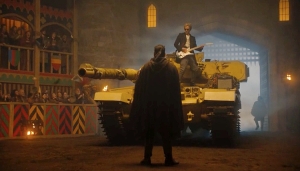Following “The Girl Who Died,” Ashildr is back in England and in 1651. She can’t age but luckily seems to be pretty good at learning and adapting to new accents and ways of speaking. And she’s also not doing very well coping with her ability not to die. So how is “The Woman Who Lived” as a sort of sequel to “The Girl Who Died?” Let’s find out.
SPOILER WARNING
I’m not sure if this story needed to be told directly after Ashildr found out she can’t die. The only real connection is her and I’m assuming they may do something with her character later in series 9, which is why they wanted to get this one out of the way so early on. But in England, Ashildr, who decides she doesn’t want that name and simply calls herself Me or as

She’s a thief and he, well, he’s trying to look cool
people know her, The Knightmare, a thief. But no ordinary thief. Instead, she’s a thief looking for an alien artifact, called The Eyes of Hades. More on all this in a moment.
If you’re wondering why Ashildr is going by Me, it’s because she doesn’t see herself as that person anymore, or any of the other people she has been, instead, she’s just her, or rather, Me. The main story basically deals with her dealing with not being able to die, which ends up feeling a little drawn out since we’ve had the Doctor go on about it a lot during the David Tennant era, so hearing it again isn’t as interesting. However, Maisie Williams is still solid in her role, so at the very least, when these specific scenes come up, they’re still well done.
It is fun to realize she became rich somewhere along the way, perhaps through thievery, but probably just had the time to get to that point. She has also become cold to the world. By not being able to die she has stopped getting close to people (she previously had children, but they all died during the Black Death, so, understandably, she’s not in the best of places right now).
Back to the alien artifact. Both Ashildr and the Doctor are looking for the same artifact, but for different reasons, and here comes the antagonist of the story: Leandro, a lion guy, like literally, it’s a lion that’s a person (Doctor Who does enjoy a future universe full of cat people).
We learn the artifact is Leandro’s way of creating a portal between his world and Earth and for his people to come and attack Earth. It’s not very exciting. However, the artifact requires a sacrifice, and Ashildr decided to sacrifice Sam Swift, a rival, or rather just another notorious thief in the area. And then after she realizes what’s going on she knows Leandro never intended to help her explore the galaxy like he promised/tricked her
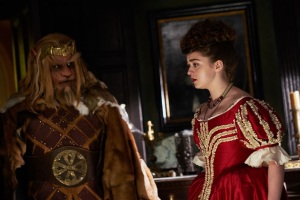
See, more cat people
into thinking, and as such she turns against him. Through a series of events he is defeated and everyone is happy. Except Swift, who was sacrificed, but if you recall, another one of those devices that brought Ashildr back is still around.
So what happens? Well, AShildr decides to stop being quite so cold to the world and she saves Swift and now he too can live forever, which really isn’t so exciting, but hey, it works to get her back on track emotionally.
Noteworthy, Clara is absent from this episode. It’s actually a bit of a relief to do without Clara for a little bit. For some reason her writing has made her somewhat overbearing. I still like her, but a break was nice.
Overall, I’m not completely into this episode. The problem is the interesting parts (relationship with the Doctor and Ashildr) end up being pushed aside some for the less than exciting story with Leandro. I do enjoy that Ashildr is set up to come back for future episodes, and I suppose this story was needed to show what she’s been up to since being a viking. Don’t get me wrong, it’s still entertaining to watch and you will want to know what happens, but looking back on series 9 so far, it does not hold up to the previous two two-part stories (possibly due to this being a setup episode for Ashildr for a future story, in which case, I do want to know what has become of her).
However, I am interested to see what happens in the upcoming two-part Zygon story, which I will be reviewing as a whole, so below are both trailers:

